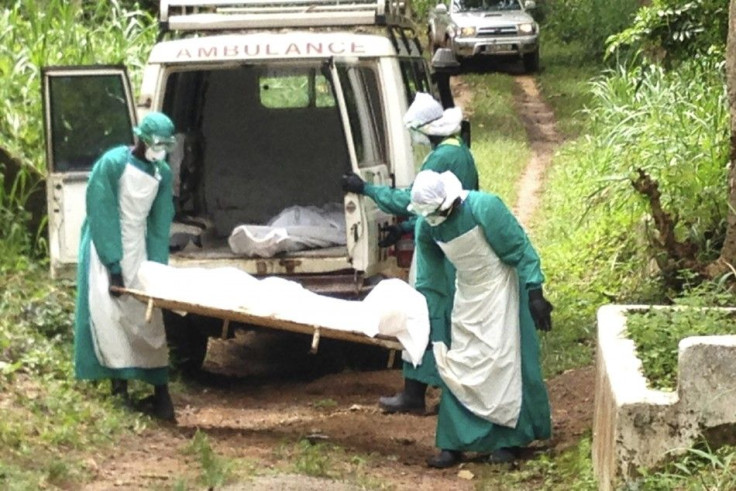Ebola Outbreak: Sierra Leone Ebola Escapee Dies
Sierra Leone has the Highest Number of Ebola Cases at 454

A Sierra Leone woman who escaped from the hospital to seek treatment with a traditional healer died on the way back to the hospital in the ambulance after she turned herself in. A nationwide hunt for the woman had begun after her family had forcibly taken her from the public hospital.
The outbreak, which began in southern Guinea, spread to Liberia and Sierra Leone, it has since taken away nearly 660 lives and is the most deadly outbreak the world has seen till date, the World Health Organisation stated.
Health officials said that there was a fear and mistrust of health workers in Sierra Leone. There was a strong belief in traditional medicine and this was hindering their efforts to contain the Ebola outbreak they stated. Huge crowds also gathered outside clinics harassing the health workers and protesting against the treatment. They threatened to burn down the buildings and remove the patients as they saw the treatment as a conspiracy.
Amadu Sisi, a senior doctor at King Harman hospital from where the patient fled, said that the police had found her in the house of a healer. There was a tiff between her family and the police after which the girl was taken away and sent to the hospital, he said. "She died in the ambulance on the way to another hospital," Sisi said.
West African health officials said that the deep cultural suspicions mean relatives in some countries will continue to try to remove sick patients from hospitals and carry out traditional funerals, which involve the manual washing of the body. They will not allow the authorities to bury the bodies.
Sierra Leone has the highest number of Ebola cases at 454 which is higher than that of the neighbouring Guinea where the virus actually broke out.
An earlier report stated that a 33-year-old American doctor, Kent Brantley, working for relief organisation Samaritan's Purse in Liberia, had contracted Ebola after moving to Africa. The health officials say that a second American, Nancy Writebol, had also tested positive. Dr Shiekh Umar Khan, chief doctor, is also battling the disease. He was one of the main voices against the fight versus Ebola. He said, "Health workers are prone to the disease because we are the first port of call for somebody who is sickened by disease. Even with the full protective clothing you put on, you are at risk."
The virus can kill up to 90 per cent of those who catch it if they don't receive treatment early. The fatality rate of the current outbreak is around 60 per cent and spread through bodily fluids. The symptoms include diarrhoea, vomiting, bleeding, fever, bleeding and central nervous system damage. There is no vaccine or cure for the disease.
The police reported a street protest in Kenema with nearly thousands of people who are unhappy with government's handling of the outbreak.
"All ports of entry to Nigeria, including airports, sea ports and land borders have been placed on red alert," said, the health minister of Nigeria, Onyebuchi Chukwu.





















